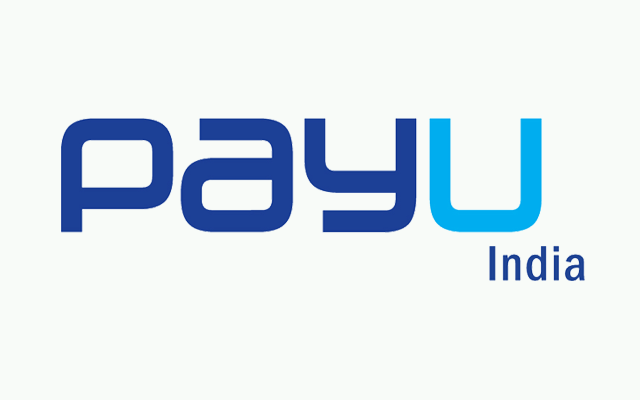Author: yiyun
Sapphire Ventures Secures $1 Billion to Invest
Palo Alto based Sapphire Ventures, owned by SAP, secures $1 Billion to invest in a new $700 Million growth fund and a $300 Million tech fund.
Following on the heels of a large group of venture groups – including Lightspeed Ventures Partners, Norwest Venture Partners, Accel Partners, Founders Fund, and Andreessen Horowitz – Sapphire Ventures joins the circle raising $1 Billion plus in 2016.
Like Wells Fargo and Norwest, Sapphire, along with limited partner SAP do not consider themselves corporate venture, but rather classic venture firms who do not invest by funding companies that can be sold to their partners.
Sapphire became an independent unit in 2011, and has subsequently funded 14 companies which have already moved from private to public and includes familiar names like Apigee, Box, and Square. In addition, Sapphire funded 33 acquisitions including the wildly popular LinkedIn.
Sapphire targets companies with a minimum of $5 million in revenue and invests in startups providing funds of up to $25 million.
Former Google GV CEO, Bill Maris, in Talks to Raise $500 Million
Bill Maris, who founded GV (Google Ventures) in 2009, recently stepped down to allegedly spend more time with his wife and son as well as consider new ideas. A recent report states that Maris is now in talks to raise $500 Million for his own fund. Confirmation of the reports is still pending.
Bill Maris was succeeded by David Krane, who had previously spent nearly 10 years as Google’s Director of Public Affairs and Global Communications. Today GV employs 70, almost all in the United States, with several partners in London and is exceptionally diversified including interests from the food industry to primary medical care.
Considering Bill Maris education in neuroscience, his interest run the gamut, but life sciences seem to intrigue him, meaning any new fund under his direction would have a broad range of interests involved.
PayU (Naspers) Announces Purchase of Citrus Pay
PayU, Naspers’ payment service provider, whose headquarters is in the Netherlands, announces the acquisition of Citrus Pay, the Indian payment gateway. Closing at $130 million (U.S.), it is one of the largest Merger and Acquisitions in the Indian internet arena and certainly in Indian financial tech history. To date, the largest M&A in India’s financial tech market was Snapdeal’s acquisition of Freecharge at $400 million in 2015.
PayU, in India, allows sites to present various payment opportunities – credit, debit, and internet banking – to its customers. In addition, the Reserve Bank of India had granted PayU a semi-closed wallet license, allowing users to link their wallets to their accounts and pay accepted sites. PayU also permits the use of multiple currencies.
Up until the acquisition, Citrus Pay was the competition, threatening PayU plan’s for the Indian market. With the merger, Citrus Pay’s CEO Amrish Rau, will become the head of PayU India, while Jitendra Gupta, co-founder will manage LazyPay, and Shailaz Nag, co-founder, will cultivate new bank alliances. Leaving the company is PayU co-founder, Nitin Gupta.
Sequoia Capital, Ascent Capital and Beenos Asia were investors in Citrus Pay’s raising of $32.5 million in three round of funding.
Razer Puts $30m Up For Grabs In IoT, Gaming and VR Developers With Launch of New zVentures
Razer is a company that has been making gaming peripherals and hardware for almost twenty years now. Razer recently caused considerable excitement by entering the software market, and this looks as if it could be the start of an exponential broadening of their horizons.
The company has now created zVentures, a venture capitalist funding group designed with the future of tech in mind. They are looking to fund ambitious new projects covering the Internet of Things, Gaming and Virtual Reality.
Out Of Many, One
The company already had a $5 million fund for an open source compatible VR headset and another to push the boundaries of Android gaming. These will now be part of zVentures, enabling a broader strategic overview on where all the money is going, and making smarter connections across the company’s networks and touchpoints.
Much More Than Money
What will be exciting for developers is that a successful bid will not only give them access to the funding they need to develop their idea, but also the infrastructure and expertise of the company, their hardware and software development capabilities and more, including retail distribution on a global scale.
A Model That Works
Razer aren’t the first company to do this. HTC have made big waves by getting into the VR game with the Vive, which looks like it may pay dividends. Intel Capital and Slack Fund are both branches of conventional IT businesses that aim to attract and develop potential business partners. Razer are not to be sniffed at however, with access to 20 million active product users.
Back End Funds
The company aren’t only looking for their next flashy tech innovation – they’re also looking at funding back end optimization tools including supply chain management, sales and marketing approaches, and more. They are aware they have to continually evolve their own business practice, not just their products, to stay ahead.
A Connected World
While VR and Gaming seem obvious, the choice to invest innovations around the Internet of Things is a fascinating and exciting development, and one that takes this new to the next level. Installing everyday devices with network connectivity and ‘smart’ functions that send and receive data will allow more customizable environments and interactions than ever before. The applications of this to VR and augmented reality are only just beginning to be explored, but Razer clearly want to get ahead of the curve.
A Start Up With Titan Backing
If asked to name the one titan of the computing hardware industry, you’d probably say Intel. Well good news! Intel is on board, and even raised a round of investment for Razer which included Accel, IDG, LianLuo and more. With international investment in Razer, and many of the same investors chipping into the zVentures pot, the reach of any product successfully funded by the project increases exponentially.
Companies that join Razer will therefore be able to pick up best practices from a company that itself used to be a start-up.
Sourcery Will Make The Magic Happen With 5 Million For Restaurant-Vendor Interfacing
The awesomely named (and likely Pratchett-inspired) start-up Sourcery Technologies Inc. is looking to change the way restaurants handle their relationship with vendors, and vice versa, by creating a portal interface solution for both sides.
They have just secured $5 million in venture funding from their original backers Marker LLC, together with Steadfast Venture Capital, Palantir and more. So what’s the big deal?
Software As A Service
Software as a service is becoming more ubiquitous all the time, and that’s because it helps businesses do what produces results while cutting time from administration. Sourcery will do just that for restaurants.
The opportunity was identified when it became clear that restaurants are way behind the times on Accounts Payable. Most still order by phone, pay by check, and most vendors send paper invoices. This mess of un-trackable communication and losable paper becomes very complicated very quickly.
Paperless
Sourcery takes everything paperless, using a digital interface designed for both restaurants and their vendors. This allows people to use scanners to digitize existing invoices and receipts, with software that extracts and organises the relevant information into the appropriate places. They can then generate future paperwork digitally, saving a lot headaches, and the environment.
Automation
This information will then be used to give restaurant owners an accurate, up to the minute take on not only their AP, but how that is affecting the rest of their business. In a restaurant, food costs have to be around a third of total costs – Sourcery will track this and alert restaurant owners to the real proportions in real time. There are a host of obvious applications to accounting and taxation, too.
Business Focus
Most of the innovation in the restaurant industry has been focused on customer experience, but this is one of the few to look at optimizing processes behind the scenes to make the business owner’s life easier.
Vendors
The company wants to use this five million to create the same service for vendors as they have for restaurants. This will enable vendors to issue invoices, track them and bill customers all through the app. The idea is to be fully scalable, so quant little farm shops find it as easy to use as large scale manufacturers.
Wide Horizons
The company isn’t going to stop there. In the short term, they’re going to introduce data insights and enterprise features for restaurants. Medium term, they’re looking at widening out the application of the software to include appliances and even utility spend, to create a whole-restaurant performance tracking solution.
There’s also word of expansion beyond restaurants into other retail applications, which means the software has the potential to blow up big time in the next few years.





